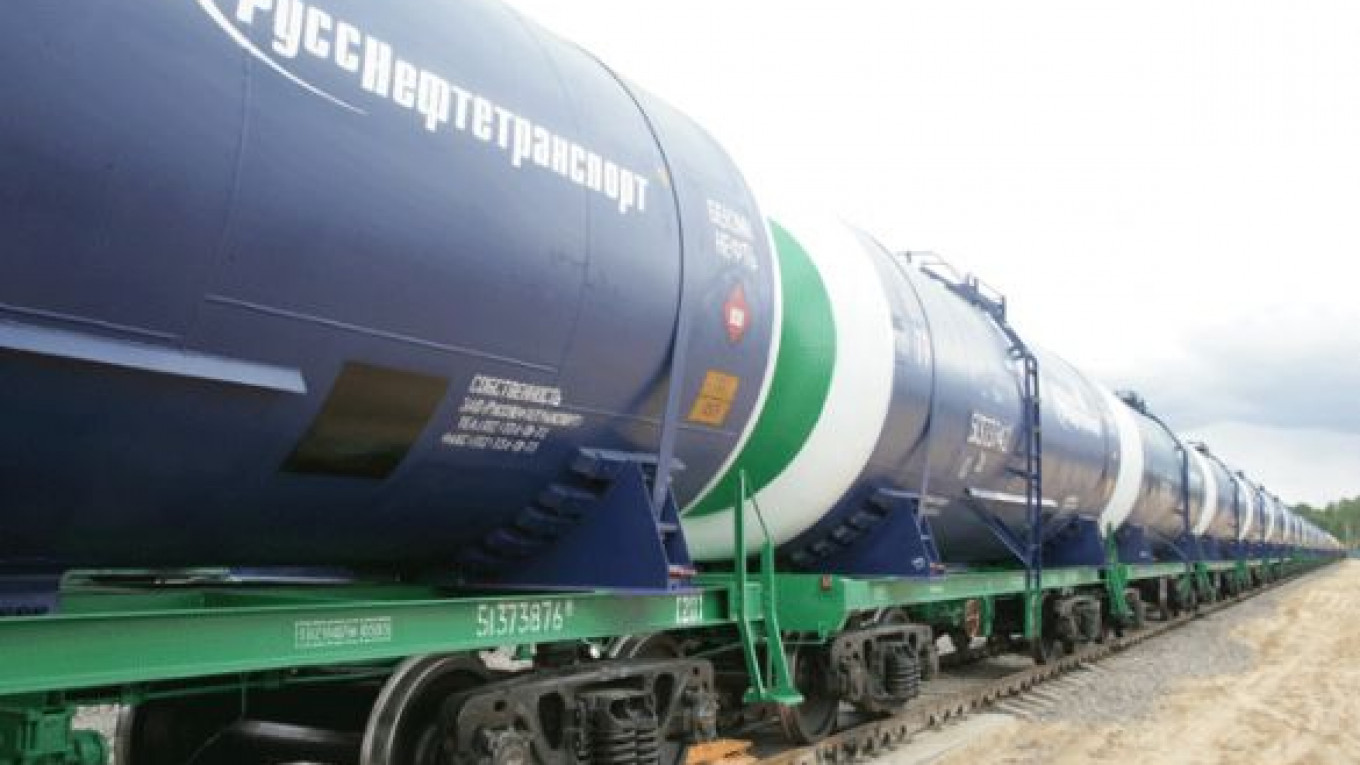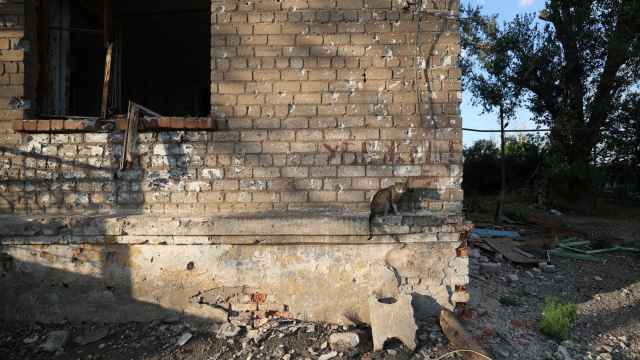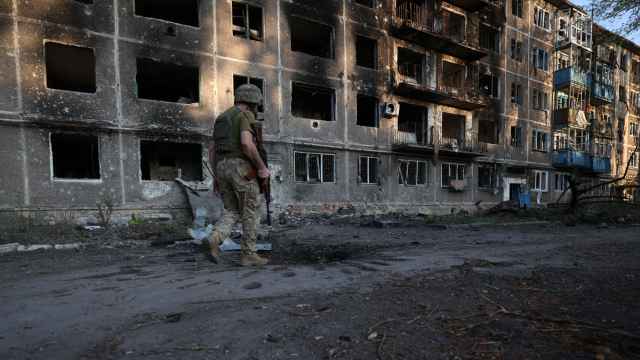Russia faces domestic fuel shortages after authorities restricted the transport of crude oil by rail, forcing several refiners to cut production, industry and market sources said.
The move has taken thousands of tons of oil products off the market in recent days, threatening a repeat of last year's fuel shortages following then-Prime Minister Vladimir Putin's order to oil companies to curb pump prices ahead of elections.
However, it is unlikely to dent crude exports, as Russia uses pipelines as its main method of transporting oil abroad.
Russia's transportation safety watchdog has banned the use of rail wagons designed to handle light oil products to ship crude and heavy fuel oil, following several rail accidents.
That has cut the number of wagons in operation, several oil refineries said, curbing supplies and forcing them to cut production runs.
Midsize producer Orsknefteorgsintez, said its heavy oil shipments slumped by almost a half. "We will only be able to function for 10 days in this mode," a company representative said. "We hope the situation will be resolved by then."
The Khabarovsk refinery, operated by Alliance, said Wednesday that it reduced throughput by half following the ban.
"As a result [of the decision], oil refinery declined from 11,200 to 11,300 tons per day to 5,100," a spokesman said.
Representatives of several other refineries have expressed concerns over the ban.
A spokesman for Rosneft, the country's largest crude producer, said the company has written to Transportation Minister Igor Levitin asking him to postpone the ban until Aug. 1.
The ban was set on May 5, according to a document posted on the watchdog's website Rostransnadzor.ru.
The spokesman declined to comment on possible refinery problems.
Rostransnadzor, which is part of the ministry, could not be reached for comment.
LUKoil, Gazpromneft, TNK-BP and Bashneft also expressed concerns over the ban to the ministry, Vedomosti reported Thursday, citing the companies.
No. 3 crude producer TNK-BP warned that it may even cut oil output if the ban stays, the Kommersant daily said Thursday, citing executive vice president German Khan's letter to Levitin.
A Message from The Moscow Times:
Dear readers,
We are facing unprecedented challenges. Russia's Prosecutor General's Office has designated The Moscow Times as an "undesirable" organization, criminalizing our work and putting our staff at risk of prosecution. This follows our earlier unjust labeling as a "foreign agent."
These actions are direct attempts to silence independent journalism in Russia. The authorities claim our work "discredits the decisions of the Russian leadership." We see things differently: we strive to provide accurate, unbiased reporting on Russia.
We, the journalists of The Moscow Times, refuse to be silenced. But to continue our work, we need your help.
Your support, no matter how small, makes a world of difference. If you can, please support us monthly starting from just $2. It's quick to set up, and every contribution makes a significant impact.
By supporting The Moscow Times, you're defending open, independent journalism in the face of repression. Thank you for standing with us.
Remind me later.







